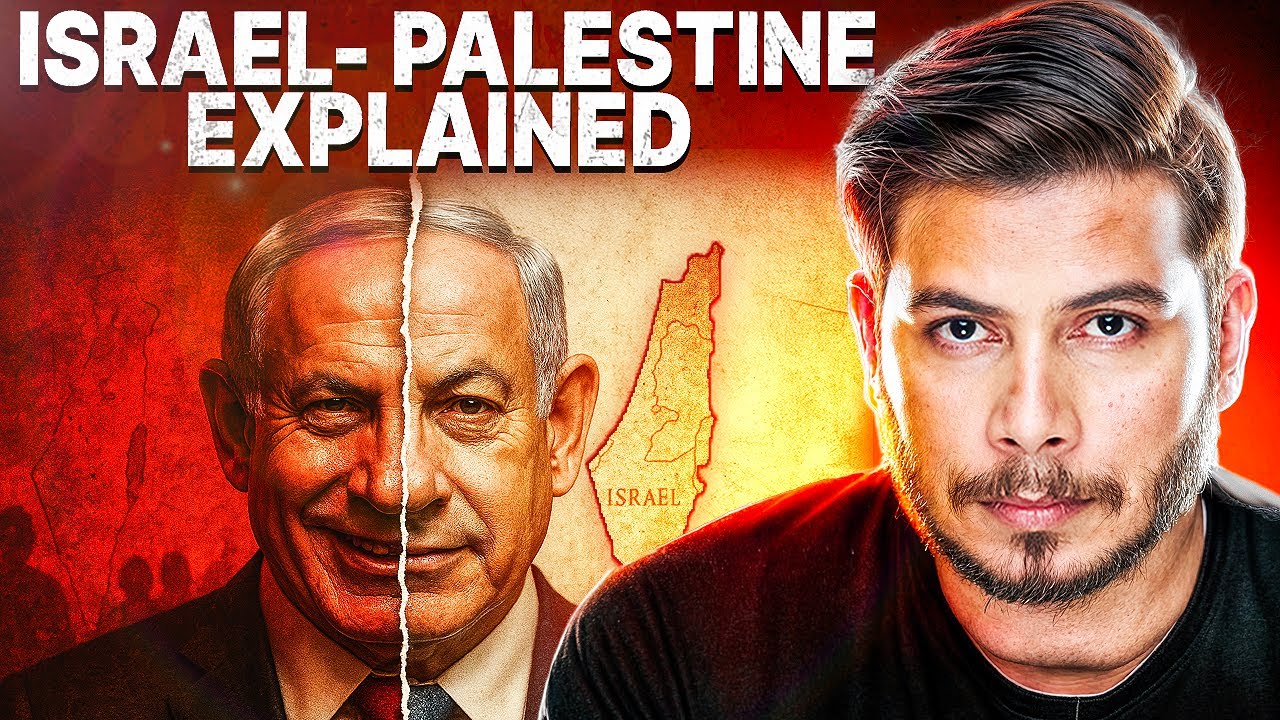Fake News? // conceito e histórico
Summary
TLDRThe video explores the history and impact of fake news, tracing its roots from ancient times to the modern era, particularly during political events like the 2016 US elections and Brexit. Fake news, often driven by political motives, uses emotional triggers such as fear and anger to spread. It highlights the role of algorithms and social media in amplifying misinformation and political polarization. The video also discusses how distrust in traditional journalism has contributed to the rise of misinformation and the creation of echo chambers, leaving civil society to act as the primary disseminators of news.
Takeaways
- 😀 Fake news is not a new phenomenon; it has existed throughout history for political manipulation, from Ancient Greece to the Middle Ages.
- 😀 Historian Marc Bloch identified the spread of fake news during World War I, recognizing how it played on people's emotions, fears, and prejudices.
- 😀 Modern fake news often takes the form of legitimate news, using expert testimonies and journalistic validation to appear credible.
- 😀 Fake news appeals to confirmation bias, reinforcing pre-existing beliefs and political ideologies, especially in politically polarized environments.
- 😀 People over 40, from the middle class, and with higher education are the most likely to share fake news, as identified by Professor Menthol from USP.
- 😀 Fake news today is propelled by the belief that it serves as a form of 'information warfare,' with individuals feeling compelled to share it to defend their political ideologies.
- 😀 Algorithms on social media platforms like Facebook and YouTube intensify the spread of fake news by curating content that aligns with users' existing preferences, creating echo chambers.
- 😀 The 2016 U.S. elections and Brexit referendum were pivotal events that contributed to the resurgence of the term 'fake news' and its widespread use in political discourse.
- 😀 The Cambridge Analytica scandal highlighted the exploitation of personal and political data to influence elections worldwide, including Donald Trump's campaign and those in Brazil.
- 😀 Trust in traditional journalism is declining, as many people now rely on social media as their primary news source, bypassing fact-checking and journalistic filters.
Q & A
What is the definition of fake news as presented in the script?
-Fake news refers to misleading or false information created with bad intentions, often for political motives, and it can spread through various channels, including social media.
How far back does the phenomenon of fake news date, and can you provide historical examples?
-Fake news is not a new phenomenon; it dates back to ancient times. Examples include political attacks in Ancient Greece and Rome, and the spread of rumors during witch hunts and the rise of anti-Semitism in the Middle Ages.
What role did historian Marc Bloch play in analyzing fake news?
-Marc Bloch, a historian after World War I, critically examined fake news, noting that it mobilized masses and often spread through societal prejudices, fears, and emotions. His work highlighted how fake news propagates across different periods.
What were some key events that popularized the term 'fake news' in modern times?
-The term 'fake news' became widely used after the 2016 U.S. elections that resulted in Donald Trump's presidency, and later during the Brexit referendum, both of which saw an increase in politically motivated misinformation.
How have the characteristics of fake news evolved in the 21st century?
-In the 21st century, fake news often comes with a source of validation, such as supposed experts or journalists. It appeals to emotions like anger and fear, and often aligns with the confirmation biases of those who encounter it.
What is confirmation bias, and how does it relate to the spread of fake news?
-Confirmation bias is the tendency to interpret new information in a way that confirms pre-existing beliefs. Fake news often thrives on this bias, as people are more likely to believe news that aligns with their own views, further spreading misinformation.
What profile did Professor Menthol outline for people who share fake news?
-Professor Menthol outlined that individuals who share fake news are typically over 40 years old, come from the traditional middle class, and have higher education. These individuals see themselves as part of an information war, contributing to the spread of misinformation.
What role do algorithms play in the spread of fake news?
-Algorithms, particularly on social media platforms, play a crucial role in amplifying fake news by recommending content that aligns with users' preferences and biases, which can trap people in information bubbles and make misinformation more widespread.
What is the relationship between fake news and political polarization?
-Fake news exacerbates political polarization by targeting people's emotions and reinforcing their political ideologies. In countries like Brazil, this has become increasingly prominent, especially during elections.
How has the role of traditional journalism in disseminating fake news changed in the digital age?
-In the digital age, traditional journalism faces greater scrutiny and distrust. Many people now rely on social media for news, bypassing professional journalism, which has led to the spread of unverified and biased information, creating a noise in communication between journalists and the public.
Outlines

This section is available to paid users only. Please upgrade to access this part.
Upgrade NowMindmap

This section is available to paid users only. Please upgrade to access this part.
Upgrade NowKeywords

This section is available to paid users only. Please upgrade to access this part.
Upgrade NowHighlights

This section is available to paid users only. Please upgrade to access this part.
Upgrade NowTranscripts

This section is available to paid users only. Please upgrade to access this part.
Upgrade NowBrowse More Related Video

Israeli–Palestinian Conflict

Sejarah Islam di Iran

Parte da história da Segurança do Trabalho no Mundo e Brasil.

De onde vêm as notícias falsas? | Nerdologia

Israel Palestine Conflict: 1000 year History | Jerusalem | Gaza | West Bank | Dhruv Rathee

Perkembangan Ilmu Geografi - Kurikulum Merdeka Klas X Fase E
5.0 / 5 (0 votes)